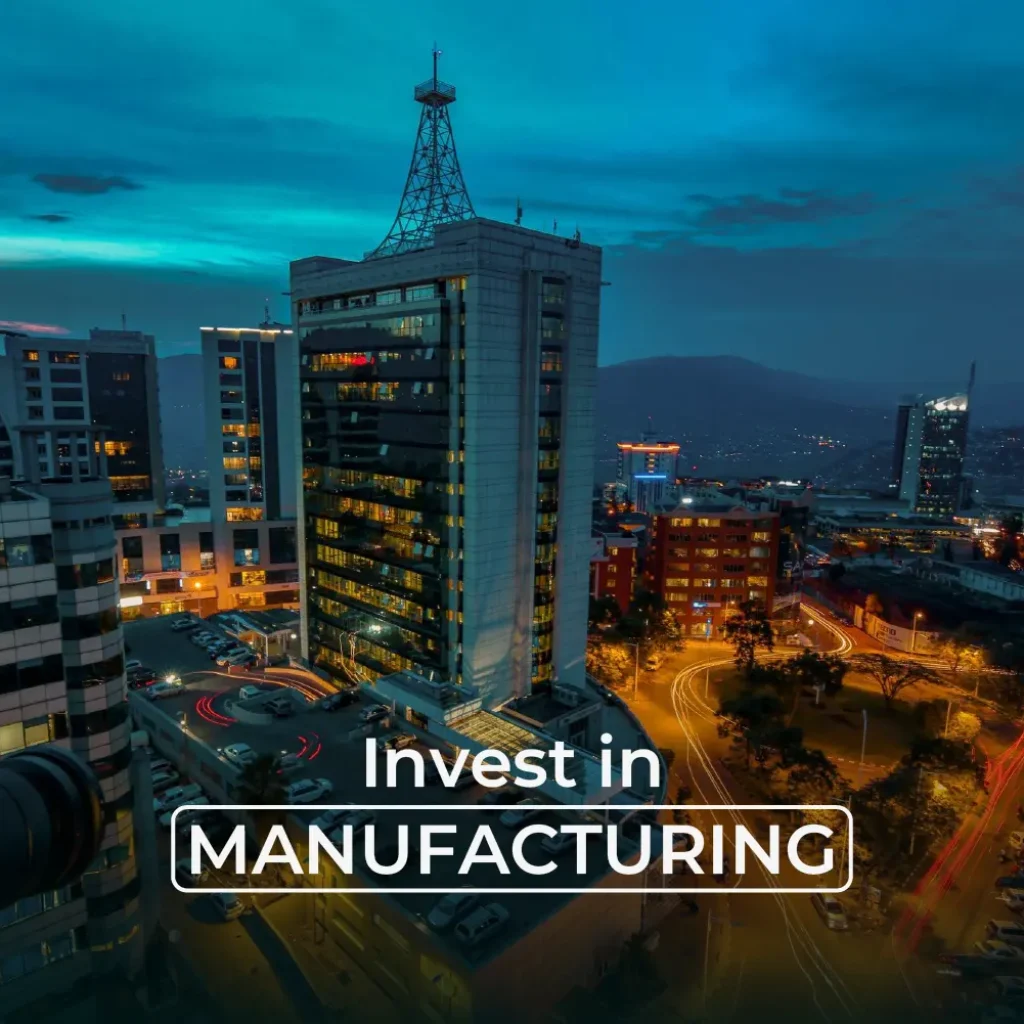If you know a thing about Rwanda, then you understand how hard the government is working so that investors can get good returns on their investments, and in return boost the economy.

Doing business in Rwanda offers a unique opportunity due to its stable political environment, strong economic growth, and supportive government policies. The country has streamlined business registration and provides various incentives for investors. With a focus on innovation and infrastructure development, Rwanda is an attractive destination for entrepreneurs.
The pharmaceutical sector in Rwanda is rapidly developing, driven by a commitment to improve healthcare access and reduce reliance on imported medications. Investors can explore opportunities in the production of generic drugs, medical devices, and health supplements. The government supports local manufacturing through favorable regulations and incentives, aiming to enhance public health outcomes.
Rwanda’s automotive industry is on the rise, supported by government initiatives to promote local assembly and manufacturing. With a growing demand for vehicles and transportation services, investors can engage in assembling cars, motorcycles, and electric vehicles. The focus on eco-friendly transportation solutions, such as electric vehicles, presents a significant opportunity for innovation and growth.
As the manufacturing and consumer goods sectors expand, the demand for packaging materials increases. Investing in the production of various packaging solutions, including plastic, paper, and container glass, offers substantial opportunities. This sector supports industries like food and beverage, cosmetics, and pharmaceuticals, enabling local businesses to reduce dependency on imports.
With a growing middle class and increasing urbanization, the demand for consumer products in Rwanda is rising. Manufacturing sectors such as personal care items, household goods, and packaged foods are ripe for investment. Local production not only meets domestic needs but also offers opportunities for export, particularly to neighboring countries.
The e-mobility sector in Rwanda is gaining traction, driven by the government’s commitment to sustainability and reducing carbon emissions. Investors can explore opportunities in manufacturing electric vehicles, e-bikes, and charging infrastructure. This sector aligns with global trends toward greener transportation solutions and offers potential for innovation and growth.
The garments sector in Rwanda is positioned for growth, supported by government initiatives promoting local textile production. With access to raw materials and a skilled workforce, investors can establish manufacturing facilities for clothing and apparel. Rwanda’s participation in trade agreements, such as AGOA, facilitates access to international markets, making it an attractive investment area.
The wood products sector in Rwanda offers opportunities in furniture manufacturing, construction materials, and decorative items. With abundant forestry resources, investors can engage in sustainable practices to produce high-quality wood products. The government encourages reforestation and sustainable forestry management, helping to ensure the long-term viability of this sector.
The recycling sector is increasingly important as Rwanda focuses on sustainability and waste management. Investors can engage in recycling materials such as plastics, paper, and metals, contributing to environmental conservation and resource efficiency. The government supports initiatives aimed at reducing waste, making this a timely and impactful investment area.
The electronics manufacturing sector in Rwanda is emerging, presenting opportunities for producing household appliances, mobile devices, and electrical components. With a growing demand for technology and digital solutions, investors can tap into this market. The government’s commitment to improving infrastructure and promoting innovation further enhances the potential for growth in this sector.